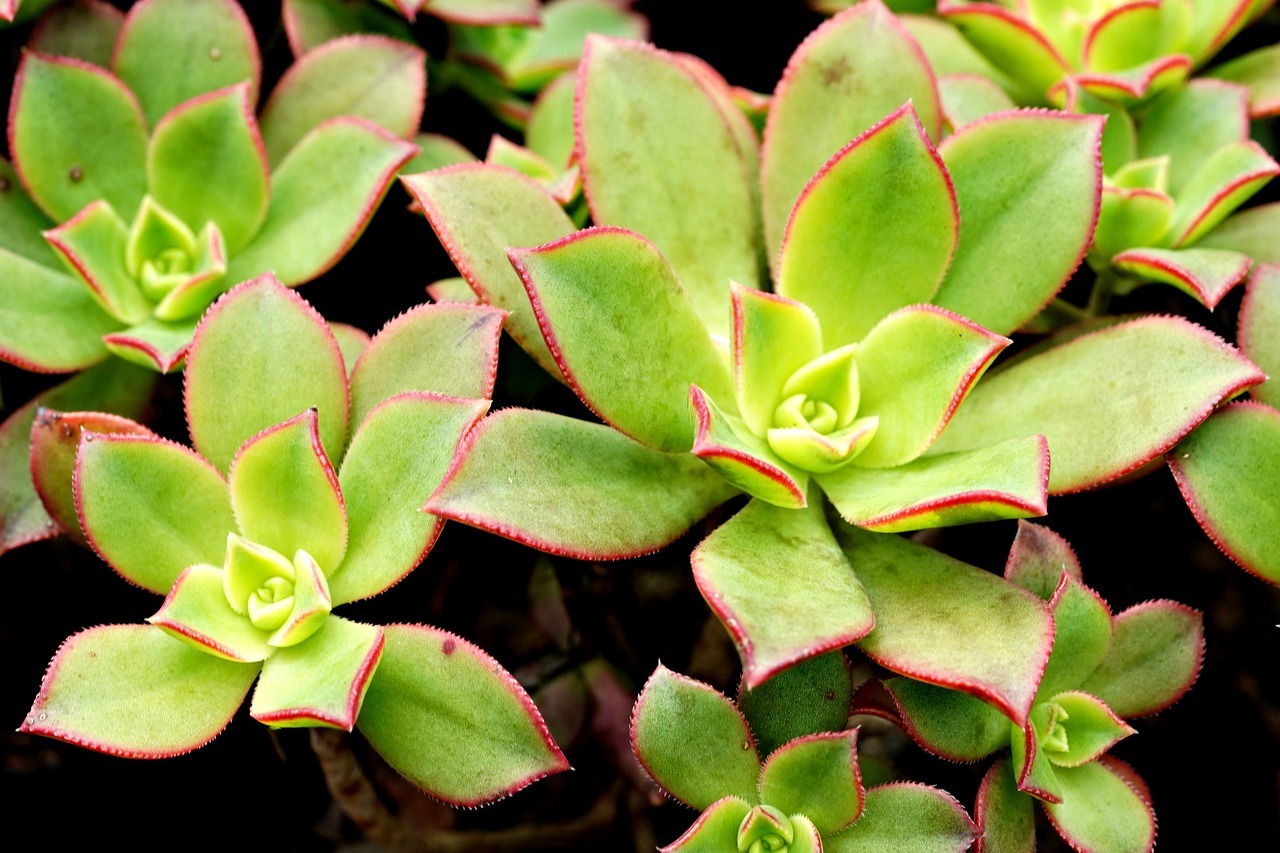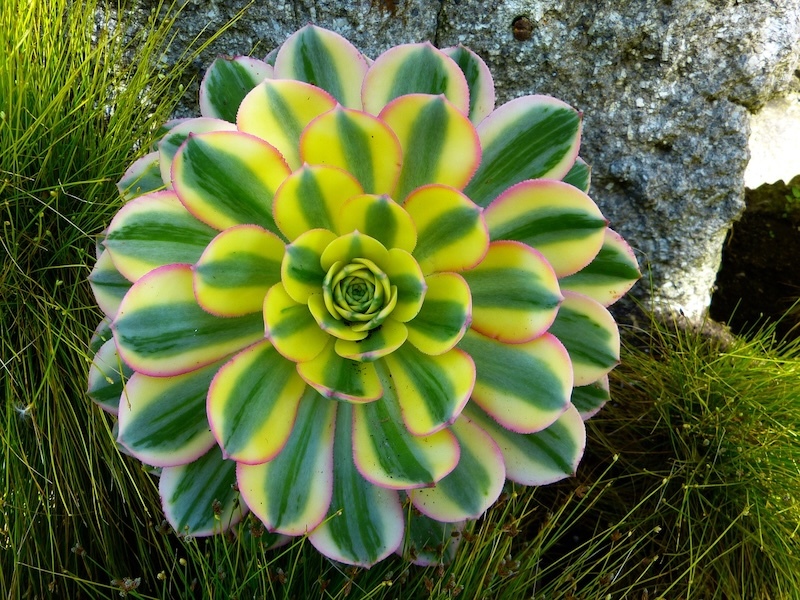Aeonium houseplants make a strong statement when grown to compliment the decor in your living space. Luckily this is one houseplant that can be grown around children and pets as it is considered non-toxic. Like any other non-toxic plant (or any food for that matter!) eating large amounts of Aeonium can cause issues like skin rashes and intestinal upset especially in smaller pets and children.
Make sure to know not just the common name for any new additions to your houseplant collection. The Latin (scientific) name gives a more exact description and is essential for identifying if your plant is considered toxic or not.

Is Aeonium Poisonous to Children?
Children are fairly safe around Aeonium plants as far as touching the foliage and stems. Ingesting large amounts will cause mild stomach upset and is more likely to be a choking hazard for the smallest children. Mild reactions like skin irritation around the mouth or hands, short-term vomiting, lack of appetite, or an upset stomach should be reported to your family doctor along with the Latin name of the plant that you suspect was eaten.
Home treatment is typically advised for a complete recovery.
Is Aeonium Poisonous to Dogs?
Puppies are much like small children and like to explore their world with their mouths. Non-toxic Aeoniums can cause mild digestive system upset when eaten in moderate amounts. There is also a danger of choking on the succulent but stiff leaves.
Smaller full-grown dogs may be at risk of having mild reactions due to their lower body weight. Vomiting and overall lethargy are the most common signs to look for if you suspect that your puppy or dog has ingested more than a few bites of Aeonium. Drooling and diarrhea are also common.

Is Aeonium Poisonous to Cats?
Cats are not bothered by munching on a leaf or two of Aeonium although smaller kittens may be more likely to do this on a regular basis. The smaller size of kittens means that they only need to ingest small amounts of Aeonium to exhibit signs of mild toxicity. Look for signs like light vomiting, diarrhea, drooling, agitation, or lethargy in normally active cats.
Is Aeonium Poisonous to Other Animals?
Other family pets should be kept out of the area where aeonium is grown to keep them from eating the foliage. Guinea pigs, hamsters, and other rodent pets may be drawn to eating the leaves and will not get seriously ill, but may have some mild intestinal issues.
Consult a vet if you need advice on how to treat your pet for overindulging in Aeonium from home. Signs to look for are drooling, agitation or seeming to be unsettled in a normally calm animal, diarrhea or possibly vomiting.
Symptoms Of Aeonium Poisoning
Although Aeonium is nontoxic, eating large amounts will cause mild symptoms that should not be ignored. Always check with your doctor or veterinarian for guidance if you suspect Aeonium exposure. Home treatment is typically all that is needed for a full recovery.Here are some common symptoms to look out for:
- Skin irritation around the mouth or hands, especially for those who have sensitive or reactive skin
- Vomiting
- Upset stomach
- Diarrhea
- Drooling
Preventing Aeonium Poisoning
Although Aeonium is considered non-toxic and safe to grow in households with pets and children, it should still be kept out of reach. The leaves could be a choking hazard for both kids and pets, not to mention that Aeonium tends to be top-heavy plants that if not fully secured are easily tipped over possibly causing damage to the plant and the child.
Grow Aeonium only in areas where pests and children are fully supervised. Growing succulents in a bedroom or playroom may seem like a low-maintenance way to decorate a shelf or corner but left unsupervised children will do unexpected things. t
Pet Poison Helpline
If something were to happen to your furry friend, and you suspect that they are suffering from Aeonium poisoning, there is a poison control hotline to call for 24/7 vet advice. It is called the Pet Poison Hotline, and their phone number is (855) 764-7661.
Sources: “Are Succulents Safe to Have in the House?” Missouri Poison Center, www.missouripoisoncenter.org
